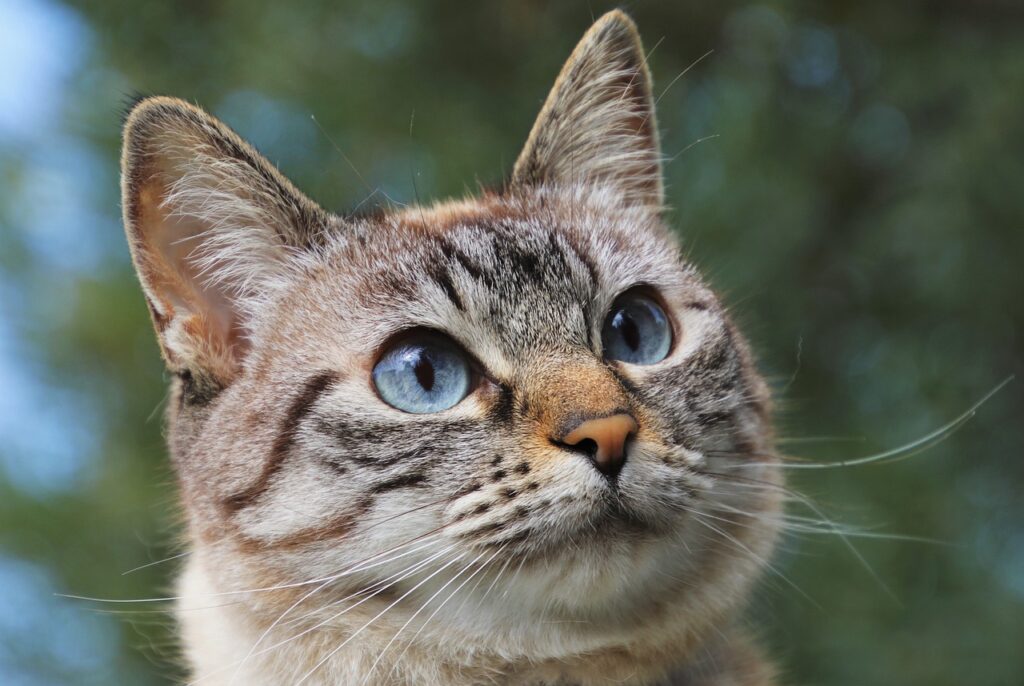Can Cats Eat Gravy? – Yes, They Can
Cats can indeed enjoy gravy in moderation, but it’s not without its caveats. While gravy might seem like a delicious treat for your feline friend, it’s important to ensure it does not contain ingredients that are harmful to cats, such as onions, garlic, or excessive salt. Mainly, gravy designed for humans might have these elements, so opt for cat-specific gravy whenever possible.
Can Kittens Eat Gravy?
With caution, kittens can have a little taste of gravy. However, at such a young age, their stomachs are more sensitive. It’s crucial to provide a nutritionally balanced diet specifically formulated for kittens. If you decide to give them gravy, it should be a specialized type designed for kittens, free from harmful ingredients and served in very small amounts.
Things to consider when feeding gravy to kittens?
Kittens require a diet that supports their rapid growth and development. If you’re considering feeding gravy to a kitten, it’s important to ensure that it is suitable for them. It should not replace their regular meals, and it should be free of any potential toxins. Feeding should also be closely monitored to avoid digestive upset or nutritional imbalances.
Nutritional Benefits of Gravy for Cats – Why Gravy is Good for Cats
Hydration
Gravy is generally high in moisture content, which can help in keeping your cat hydrated, especially important for cats that may not drink enough water on their own.
Appetite Stimulation
For picky eaters or cats with decreased appetites, the enticing aroma and flavor of gravy can be a powerful stimulant, encouraging them to eat their regular meals when mixed in.
Added Variety
A simple drizzle of gravy can add a welcome change to a cat’s routine diet, helping to prevent mealtime boredom.
Taste Enhancement
Gravy can enhance the overall palatability of a cat’s meal, especially if the cat is on a special diet that may not be as appealing as its usual food.
Supplemental Nutrition
If you’re using a gravy specifically designed for cats, it may include added vitamins and minerals that can supplement your cat’s diet.
Potential Allergies: Can Cats Be Allergic to Gravy?
While it’s uncommon for cats to be allergic to gravy itself, they can be allergic to specific ingredients within it. It’s vital to watch for any adverse reactions when introducing gravy into their diet, especially if it’s a new addition.
Symptoms of Gravy Allergies in Cats
- Gastrointestinal Issues: Look for signs such as vomiting or diarrhea shortly after consuming gravy.
- Skin Reactions: Watch for itching, redness, or irritation on the skin which might indicate an allergic reaction.
- Respiratory Symptoms: In rare cases, allergies can manifest as coughing or wheezing, though this is less common with food allergies.
What to Do If Your Cat Shows Symptoms?
- Immediate Withdrawal: Stop feeding the gravy immediately if you notice any adverse reactions.
- Veterinary Consultation: Seek professional advice to get a proper diagnosis and treatment plan.
- Dietary Review: Work with your vet to identify potential allergens and adjust your cat’s diet accordingly.
Recommended Amount: How Much Gravy Can a Cat Consume?
Gravy should be treated as a treat, not a meal. A tablespoon or two mixed into their regular food is plenty. Be mindful of the overall caloric intake to avoid weight gain—it’s generally recommended that treats should not make up more than 10% of a cat’s daily caloric intake.
Things to Consider When Feeding Gravy to Cats
Ensure that the gravy does not contain toxic ingredients to cats and is low in sodium. Also, consider your cat’s overall health. Cats with specific health issues may require a more controlled diet and thus, might need to avoid gravy altogether.
How to Feed Gravy to Cats: A Quick Guide
Gravy can turn an ordinary meal into a delectable feast for your cat. But remember, it’s not a substitute for a balanced diet. It should be used as a complement, served in small amounts, and ideally, it should be a product formulated for cats.
Cat-Friendly Gravy Drizzle
Blend a small amount of cat-specific gravy with some warm water and drizzle it over their dry food to soften the kibble and add flavor.
Savory Gravy Cubes
Freeze cat gravy in an ice cube tray and give your cat a gravy cube as a cool treat on a hot day or to encourage play and hydration.
Wet Food Infusion
Mix a little gravy into your cat’s wet food to enhance the taste and provide a different texture, making meal times more enticing.
Conclusion
In conclusion, while cats can eat gravy, it’s all about moderation and mindfulness of ingredients. Always opt for cat-specific gravy to avoid potential health risks. When provided as an occasional treat, it can be a delightful addition to your feline’s diet.



